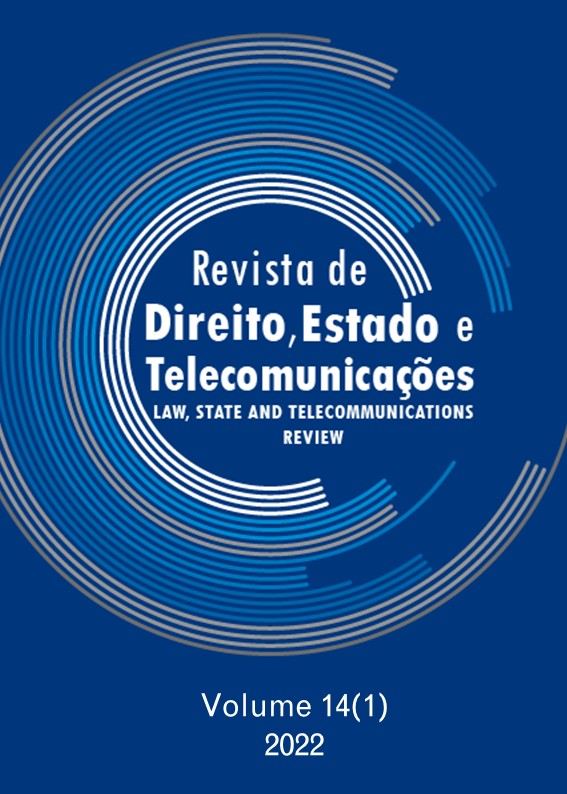The Efficiency of e-Services in Mexico
a Multidimensional Perspective – Federal Driver's License Digitization Case Study
DOI :
https://doi.org/10.26512/lstr.v14i1.38876Mots-clés :
Citizenship. Efficiency. e-Services. Government. ICT.Résumé
[Purpose] The purpose of this study is to determine the benefits of e-services, both for a government agency and for citizens in terms of efficiency, derived from the digitalization of one of its processes.
[Methodology/Approach/Design] A case study is presented of a project developed and implemented in 2021 in Mexico at the federal level by the Ministry of Communications and Transportation (SCT), which consisted of the digitalization of the process of issuance and/or revalidation of the Federal Driver's License. The first two months of operation are taken as a reference to determine the effects that this digital platform has had on economic, technical, and social efficiency. Analyzing the number of requests handled, costs for both the government and the citizen compared to the printed license and its processes.
[Findings] Its theoretical basis is an analysis of efficiency based on a multidimensional notion of the concept, which is important since it analyzes improvement scenarios from the government's and citizens' points of view. The above allows this study to determine the benefits of electronic government services, both for a government agency and for citizens in terms of efficiency.
[Practical Implications] The benefits that the Federal Digital License has represented in terms of cost reduction, process improvement, and increased citizen service the Federal Digital License have been demonstrated to these two actors.
[Originality] The difference with the contributions of other studies lies in the object of study, which is the Federal Driver's License system, a case that has not been studied due to its recent implementation. This opens the door to future research, where not only quantitative data expressed in numerical terms can be analyzed, but also user satisfaction can be directly evaluated qualitatively.
Téléchargements
Références
BAYONA, S., & MORALES, V. (2017). E-government development models for municipalities. Journal of Computational Methods in Sciences and Engineering, 17, S47–S59. Available at: https://doi.org/10.3233/jcm-160679
BERNTZEN, L. (2014). Electronic Government Service Efficiency: How to Measure Efficiency of Electronic Services. Measuring Usability to Improve the Efficiency of Electronic Signature-Based e-Government Solutions. In Rodríguez-Bolívar, M. P. (Ed). Measuring E-government Efficiency. Cap 5. 75-92. Available at: https://doi.org/10.1007/978-1-4614-9982-4_5.
CARRERA-MORA, O., OVANDO, M., VILLAFUERTE, L., Y PARADA, A. (2019). La relación de la perspectiva de eficiencia del ciudadano con su comportamiento de uso de los servicios de e-gobierno municipal. Innovar, 29 (74), 133-146. Available at: https://doi. org/10.15446/innovar.v29n74.82096.).
CHOI, J.-C., & SONG, C. (2020). Factors explaining why some citizens engage in E-participation, while others do not. Government Information Quarterly, 37(4), 101524. Available at: https://doi.org/10.1016/j.giq.2020.101524
DIAS, G. P. (2019). Fifteen years of e-government research in Ibero-America: A bibliometric analysis. Government Information Quarterly. Available at: https://doi.org/10.1016/j.giq.2019.05.008
ELINA SIDORENKO, IGOR BARTSITS Y ZARINA KHISAMOVA (2019). "The Efficiency of Digital Public Administration Assessing: Theoretical and Applied Aspects". Public administration issues, Higher School of Economics, 2, 93-114.
GOBIERNO DE MÉXICO (2021). Expedición de licencia federal de conductor modalidad nacional. Consultado el 20 de mayo de 2021. Available at: https://www.gob.mx/tramites/ficha/expedicion-de-licencia-federal-de-conductor-modalidad-nacional/SCT1100
GIL-GARCÍA, J. R., Y FLORES-ZÚÑIGA, M. Á. (2020). Towards a comprehensive understanding of digital government success: Integrating implementation and adoption factors. Government Information Quarterly, 37 (4), 101518. Available at: https://doi.org/10.1016/j.giq.2020.101518
JIANG, T., WANG Y., LIN, T., Y SHANGGUAN, L. (2021). Evaluating Chinese government WeChat official accounts in public service delivery: A user-centered approach. Government Information Quarterly, 38 (1), 1-16. Available at: https://doi.org/10.1016/j.giq.2020.101548
KAMOLOV, S., Y KONSTANTINOV, A. (2017). E-government: way of modernization and efficiency enhancement of public governance. International conference political transformations in modern EUROPE, 1 (42), 13-21. Available at: https://doi.org/10.24833/2073-8420-2017-1-42-13-21
LARSSON, K. K. (2020). Digitization or equality: When government automation covers some, but not all citizens. Government Information Quarterly, 38 (1), 1-10. Available at: https://doi.org/10.1016/j.giq.2020.101547
LOBERG, I. B. (2021). Efficiency through digitalization? How electronic communication between frontline workers and clients can spur a demand for services. Government Information Quarterly, 38 (1). Available at: https://doi.org/10.1016/j.giq.2021.101589
PURÓN-CID, G., LUNA, D.E., PICAZO-VELA, S., GIL-GARCÍA J.R., SANDOVAL-ALMAZÁN, R., Y LUNA-REYES, L.F. (2021). Improving the assessment of digital services in government websites: Evidence from the Mexican State government portals ranking. Government Information Quarterly, 38 (1). Available at: https://doi.org/10.1016/j.giq.2021.101589
RODRÍGUEZ-BOLÍVAR, M. P. (Ed.). (2014). Measuring E-government Efficiency. Available at: https://doi.org/10.1007/978-1-4614-9982-4
SAAB, F., LIRA, W. R. C., DE SOUZA ALVES, C., DE SOUZA BERMEJO, P. H., Y BORGES, G. H. A. (2018). Public Management and Technology: How Can e-Government Strategies Contribute to Greater Efficiency in Public Expenditures? Third International Congress on Information and Communication Technology, 457–470. Available at: https://doi.org/10.1007/978-981-13-1165-9_43
SECRETARÍA DE COMUNICACIONES Y TRANSPORTES – SCT (2021). Base de datos. Indicadores de la Licencia Federal Digital (LFD) del Autotransporte Federal. Unidad de Tecnologías de Información y Comunicaciones.
SECRETARÍA DE GOBERNACIÓN – SEGOB (2021). Instrumentación de la licencia federal digital. Diario Oficial de la Federación (DOF). Available at: http://dof.gob.mx/nota_detalle.php?codigo=5611493&fecha=15/02/2021
UNITED NATIONS – UN (2020). Encuesta sobre E-Gobierno, 2020. Available at: https://publicadministration.un.org/egovkb/Portals/egovkb/Documents/un/2020-Survey/2020%20UN%20E-Government%20Survey%20(Spanish%20Edition).pdf
WU, J., Y GUO, D. (2015). Measuring E-government performance of provincial government website in China with slacks-based efficiency measurement. Technological Forecasting and Social Change, 96, 25–31. Available at: https://doi.org/10.1016/j.techfore.2015.01.007
ZEFFERER, T., KRNJIC, V., STRANACHER, K., Y ZWATTENDORFER, B. (2014). Measuring Usability to Improve the Efficiency of Electronic Signature-Based e-Government Solutions. In RODRÍGUEZ-BOLÍVAR, M. P. (Ed). Measuring E-government Efficiency. Cap 4. 45-74. Available at: https://doi.org/10.1007/978-1-4614-9982-4
Téléchargements
Publié-e
Comment citer
Numéro
Rubrique
Licence
(c) Tous droits réservés Law, State and Telecommunications Review 2022

Cette œuvre est sous licence Creative Commons Attribution 4.0 International.
By submitting this paper to the Law, State and Telecommunications Review,
I hereby declare that I agree to the terms of the Creative Commons Attribution 4.0 International (CC BY 4.0).


